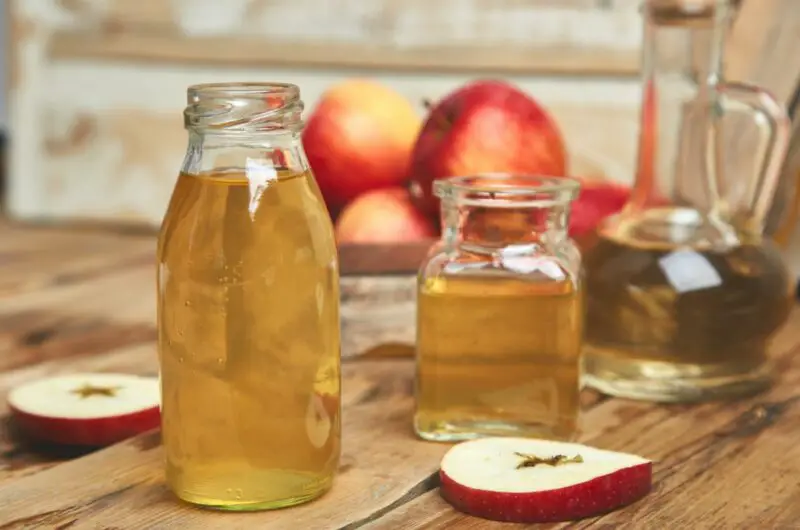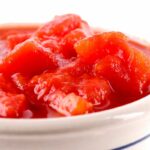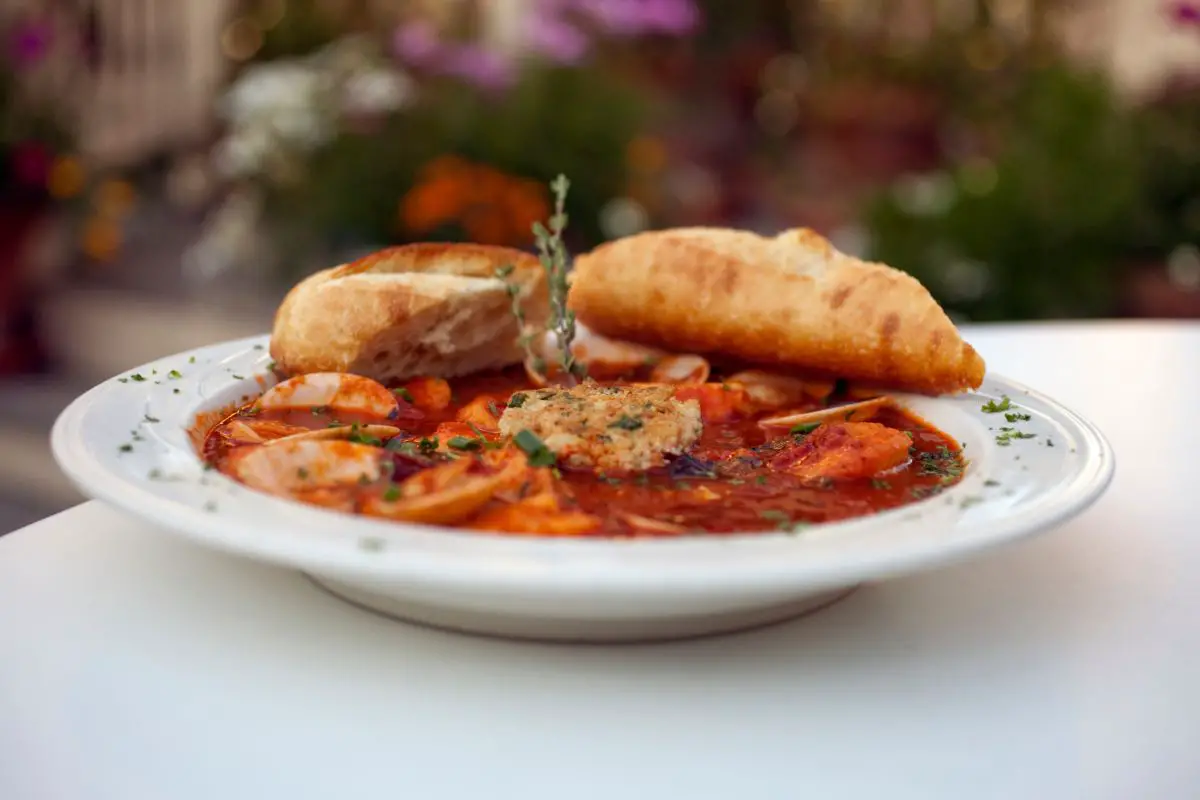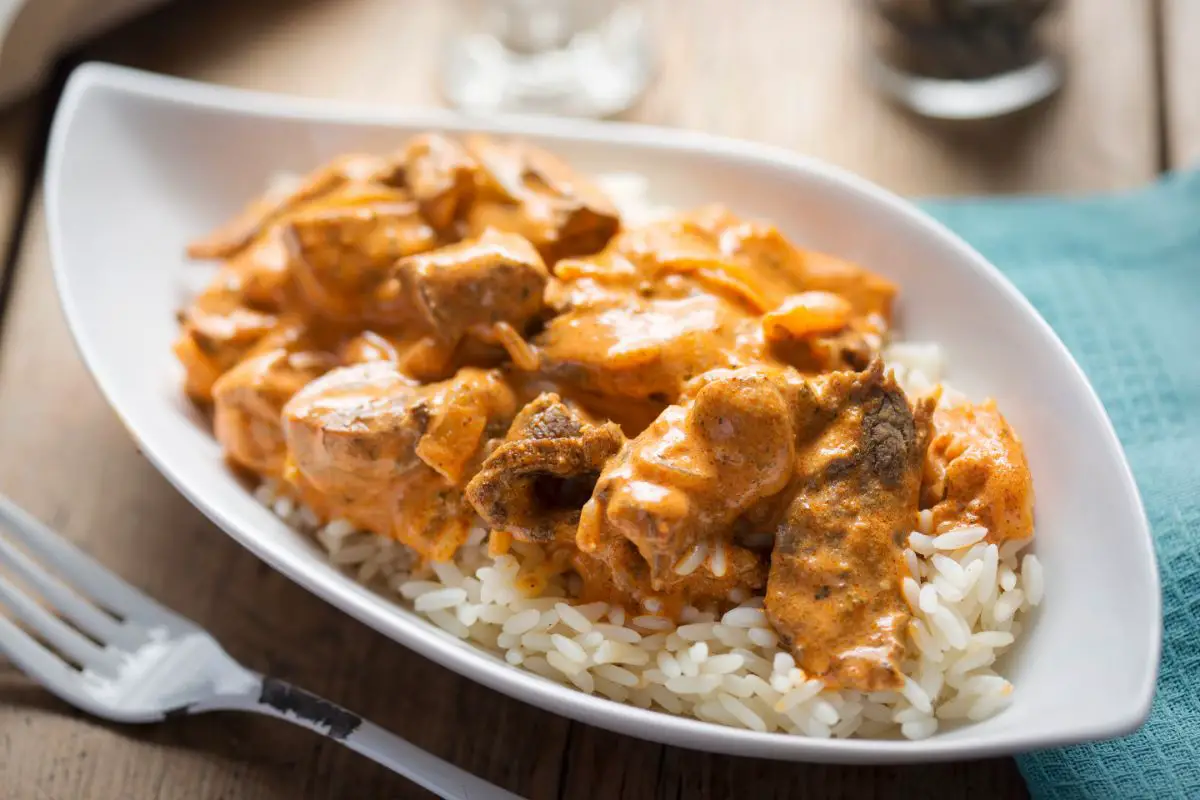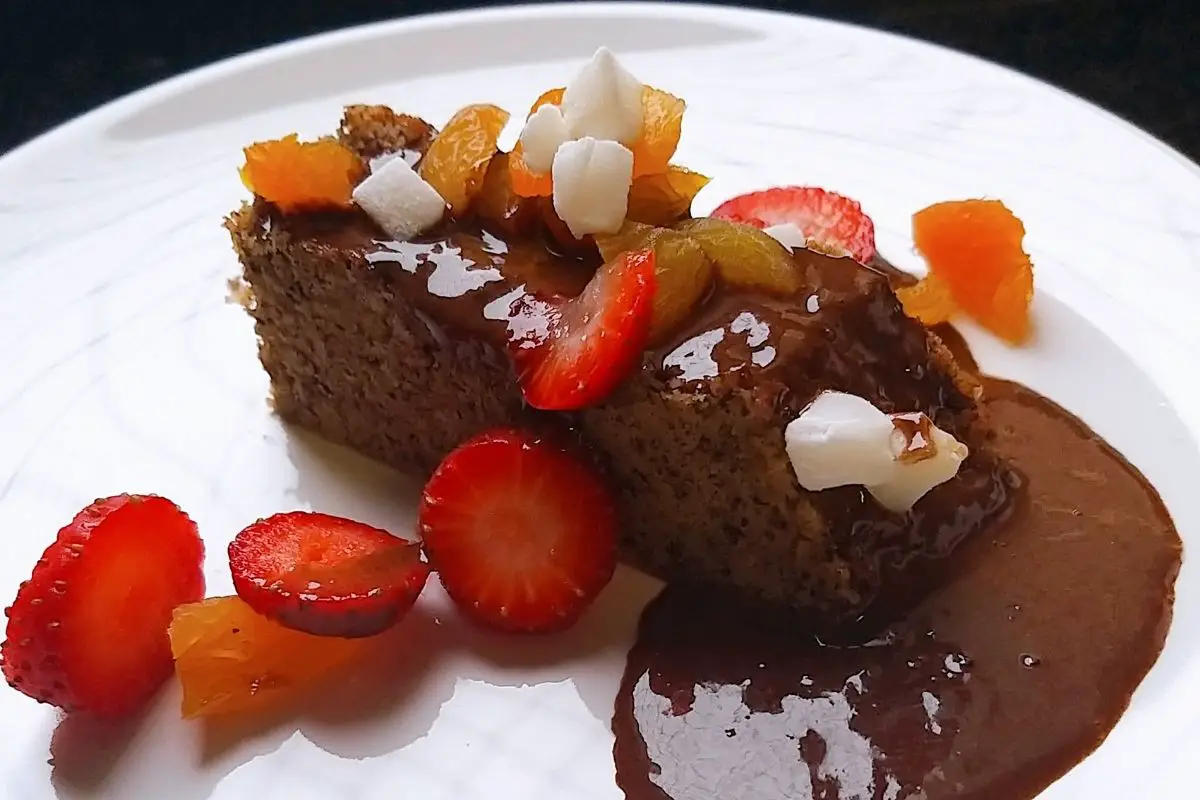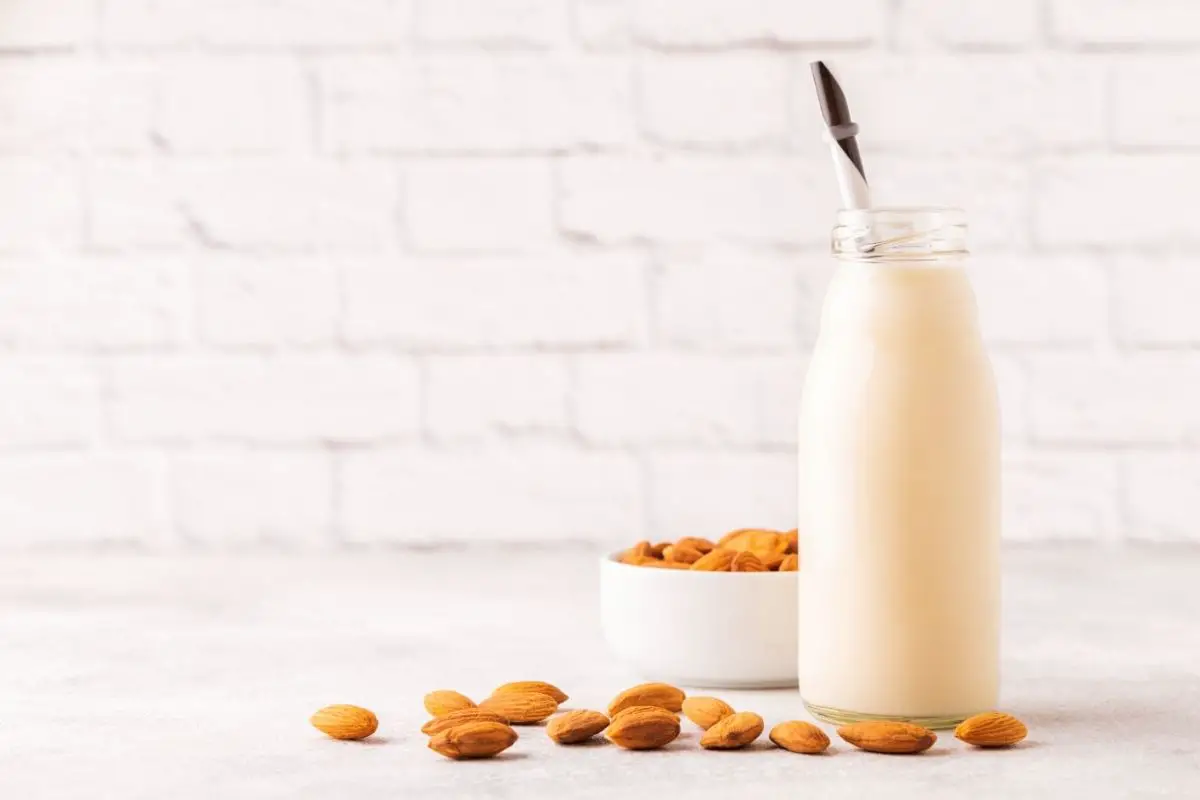Champagne vinegar is a light and flavorsome vinegar that is made from champagne. Its crisp flavor profile makes it a great addition to many dishes such as salad dressings and meat glaze. Once you’ve tried this vinegar, you’re sure to find ways to use it in so many of your meals.
However, it’s not the most common form of vinegar. Many stores don’t stock it and it can be expensive. There may be times that your recipe calls for champagne vinegar but you’ve run out and don’t have any in your kitchen.
Luckily, there are several substitutions you can make for champagne vinegar. In this article, we introduce the six best champagne vinegar substitutes that you can make. They’ll ensure that champagne vinegar or not, your food will still taste delicious!
Let’s get started!
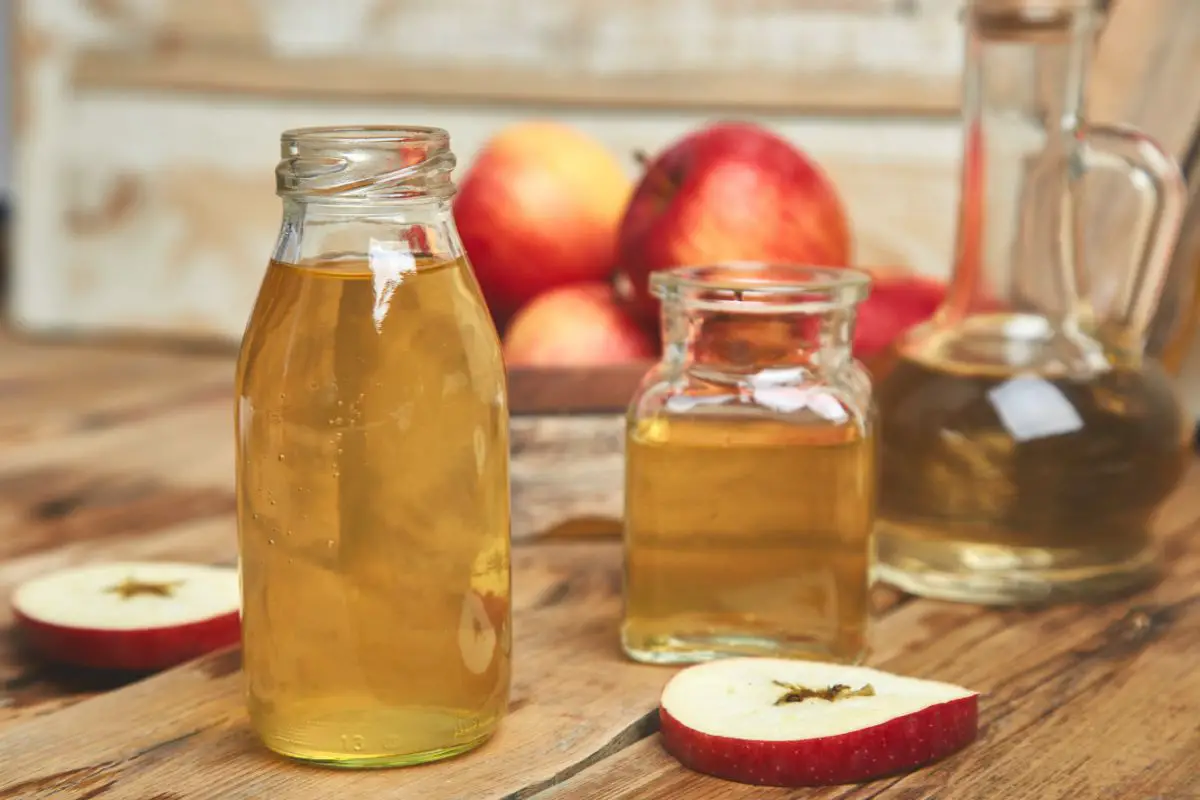
What Is Champagne Vinegar?
As the name may suggest, champagne vinegar is a type of vinegar that is made from champagne.
Once champagne wine has been brewed, it is then kept in oak barrels and left to age. Eventually, it will turn acidic and become vinegar. This process can take as many as two years to fully complete!
When the champagne vinegar is ready, it has a fruity flavor that is light and crisp. This makes it perfect for use in a wide variety of dishes, but especially salads. It’s also suitable for use as a deglazing agent on a variety of meats and poultry.
Champagne vinegar is a very versatile type of vinegar and will add a light flavor to many different dishes.
The 6 Best Champagne Vinegar Substitutes
Now that we know what champagne vinegar is and how it is made, let’s look at the best substitutes for champagne vinegar.
1. White Wine Vinegar
One of the best and closest substitutes for champagne vinegar is white wine vinegar. This shouldn’t be a surprise as after all, champagne is a form of white wine.
White wine vinegar is a very popular type of vinegar in salad dressings and marinades. This is because it isn’t as strongly acidic as many other types of vinegar and has a milder taste.
Instead of overpowering salads it lightly complements them. It can also be used in stews and other types of sauce as it has a slightly sweet flavor as well.
You can use white wine vinegar in the same quantities as champagne vinegar. It is a little sweeter than champagne vinegar, however, so we would recommend reducing the amount of other sugar that is in the recipe.
2. Sherry Vinegar
Sherry is another form of wine so again, it’s not surprising that this vinegar works as a substitute for champagne vinegar.
It does taste and look different from champagne vinegar, however. It has a dark brown color and has more complex flavors that have nutty tones to them.
Sherry vinegar is commonly used in Spanish cuisine and it pairs well with a variety of spices, especially paprika. You’ll often find sherry vinegar added to stews, sauces, and soups.
Sherry vinegar is more acidic than champagne vinegar so it shouldn’t be used in the same quantities when being used as a substitute.
Instead, use half as much sherry vinegar as you would champagne vinegar. If you use equal amounts, the sherry vinegar will overpower your dish and make it too acidic.
3. Apple Cider Vinegar
This type of vinegar is quite different from other types of vinegar. It usually has a thicker consistency than other kinds of vinegar and can even look opaque and murky instead of clear. It has a very strong and tart flavor and is a lot more acidic than champagne vinegar.
When you use apple cider vinegar in place of champagne vinegar, you need to take this additional acidity into account. Don’t use the same amount of apple cider vinegar as this will make your dish too acidic and will ruin the flavors.
We recommend using just half the amount of apple cider vinegar compared to champagne vinegar. You should then taste your dish and add a little more if it is required. You might also want to add a little extra sweetener such as honey or maple syrup to the apple cider vinegar to make it sweeter.
4. Rice Wine Vinegar
This type of vinegar is often found in East Asian cuisine and especially in Japanese cooking. It is made from rice that has been fermented and added to water.
It’s one of the milder-tasting kinds of vinegar you will find and this makes it ideal for dishes that don’t need strong flavors. It’s commonly used in salads and other recipes that don’t need overpowering vinegar.
It has a thinner and runnier consistency than most other types of vinegar and is also a little sweeter. This sweetness often works well in savory dishes and the thinner consistency makes a great base for vinaigrettes and light sauces.
You can use rice wine vinegar in the same amounts as you would use champagne vinegar. It’s a great substitute as it has a very similar level of acidity to champagne vinegar. It’s not as tart and has a lighter taste, however.
5. Red Wine Vinegar
We included white wine vinegar earlier in this list and now we have moved on to the red variety. As you may expect, red wine vinegar is made from red wine. It’s a little thicker than many other types of vinegar and has a flavor that is both sharp and tangy.
It’s often used as an ingredient in marinades, sauces, and vinaigrettes. It also makes a good substitution for champagne vinegar.
When using red wine vinegar as a substitution for champagne vinegar, you should remember that it does have a different flavor profile. It’s not as sweet as champagne vinegar and has a sharper and tangier taste.
You may need to combat this tartiness by adding some extra sugar or sweetness to the dish. If the recipe already calls for sugar, add a little more. If not, you may want to use some honey or maple syrup to sweeten the red wine vinegar.
6. Homemade Champagne Vinegar
Our last option is to make your own! There are many different recipes for making homemade champagne vinegar but our favorite requires few ingredients and isn’t complicated.
In fact, all you’ll need is some champagne, apple cider (or another fruity and non-alcoholic vinegar), water, a glass jar (or ceramic container), and some cheesecloth.
Your champagne needs to be flat for this to work as you don’t want any gas to get into the mixture. Mix together the ingredients at a ratio of 750 ml of champagne to one cup of water.
Then place your mixture inside your jar or container and cover the open mouth with some cheesecloth. Seal the cheesecloth in place with some rubber bands.
It will take one to three months for your homemade champagne vinegar to be ready. Of course, this won’t help you if you need champagne vinegar for that evening, but if you make your own homemade champagne vinegar you can ensure there’s always some in your kitchen.
Final Thoughts
In this article, we listed the six best champagne vinegar substitutes. Champagne vinegar is a light and crispy vinegar that is made from champagne and it can add a lot of flavor to your cooking. If you don’t have any to hand, however, there are several substitutions you can make.
You can even make your own champagne vinegar at home if you have the time, ingredients, and desire to do so! We hope that this list of the six best champagne vinegar substitutes will help you if you run out of champagne vinegar.
The 6 Best Champagne Vinegar Substitutes
Course: Substitutes4
servings30
minutes40
minutes300
kcalIngredients
Directions
- Pick a recipe from the list above
- Click the recipe name and visit the website
- Collect the ingredients and cook the food
- Enjoy – don’t forget to leave a review
Recipe Video
https://www.youtube.com/watch?v=Ltv03Xjj7OQVideo can’t be loaded because JavaScript is disabled: Vinegar 101-Champagne Vinegar (https://www.youtube.com/watch?v=Ltv03Xjj7OQ)- Author
- ss="abh_posts">Recent Posts
- What Exactly Do Chickpeas Taste Like? Is There A Distinct Flavor? - September 30, 2023
- Top 11 Low Carb Options at Sonic Drive-In for Keto Diet - September 30, 2023
- What Should You Serve Alongside Potato Salad? 8 Incredible Side Dishes - September 30, 2023

